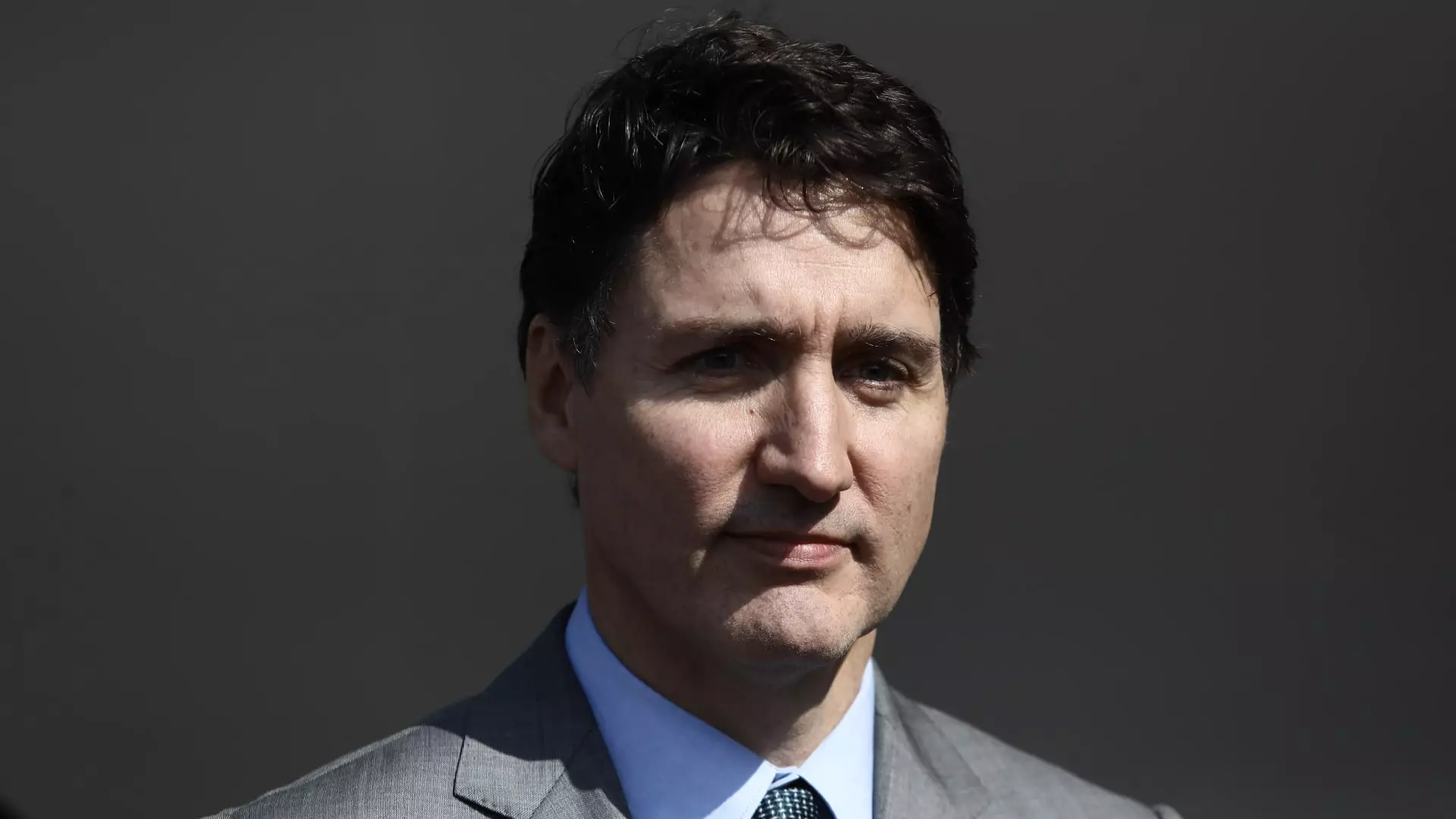The political landscape in Canada is abuzz with speculation regarding the future of Prime Minister Justin Trudeau. As echoed by insiders close to Trudeau, the Prime Minister is contemplating his potential resignation from not only his position as Prime Minister but also his role as the leader of the ruling Liberal Party. Such a move would mark the end of a nearly nine-year tenure, fraught with significant challenges and prevailing controversies. Reports have indicated an imminent announcement, possibly as soon as Monday, leaving political analysts and the public alike anticipating this pivotal moment in Canadian politics.
The urgency of Trudeau’s decision is underscored by an approaching emergency meeting of Liberal legislators, where the party’s future may hang in the balance. It has become increasingly clear that the Liberal Party is grappling with a precarious situation, especially with recent polls predicting substantial losses against the official opposition, the Conservative Party. In an era defined by political turbulence, Trudeau’s possible resignation may set into motion a cascade of events that could reshape the party’s direction and strategy moving forward.
Growing unrest within the ranks of the Liberal Party has fueled calls for Trudeau to step aside. As discontent over the government’s trajectory mounts, several MPs are speaking out, urging the Prime Minister to take responsibility and make way for new leadership. With the political climate appearing hostile toward the Liberals, the pressure to act has intensified, forcing Trudeau into a reflective and uncertain space.
Compounding this situation is the fallout from a controversial attempt to adjust his cabinet, which resulted in the resignation of longtime ally and Finance Minister Chrystia Freeland. Her departure, characterized by allegations of political missteps levied at Trudeau, illustrates the deepening chasm between his leadership style and the expectations of some party members. As the political narrative unfolds, the Prime Minister’s foundational promise of progressive governance appears to be at odds with the realities facing both the party and the electorate.
Political Legacy and Deteriorating Public Trust
Trudeau rose to power in 2015 with ambitious promises of “sunny ways,” embodying a vision of positive change and a commitment to progressive values, including climate action and equality. However, the complexities of governance, alongside unexpected global events such as the COVID-19 pandemic, have forced Trudeau to navigate a series of unpredictable challenges. The administrative response, marked by escalating fiscal expenditures to mitigate the pandemic’s impact, has left Canada grappling with monumental budget deficits and rising public discontent.
Public sentiment has been notably influenced by various pressing issues, including a housing market overwhelmed by rampant immigration and soaring prices for everyday goods. These realities have eroded the trust Canadians once placed in Trudeau’s leadership, prompting a reevaluation of his policies and overall governance strategy. For a leader who found success through formidable oratory and inspiring rhetoric, the shift in public perception poses a serious threat as election prospects loom on the horizon.
Should Trudeau officially resign, the looming question arises: what will be the future of the Liberal Party? The rapidly changing political landscape may necessitate a swift transition to new leadership, which in turn could impact the party’s viability in an upcoming election. The prospect of a Conservative resurgence underlines the urgency for the Liberals to stabilize their leadership and assuage internal dissent. Whether Finance Minister Dominic LeBlanc or another figure steps in as interim leader, it is essential for the party to secure a cohesive vision to regain public trust and tackle the challenges at hand.
Trudeau’s decision—whether to step down immediately or remain in position until a successor can be identified—will significantly influence the trajectory of Canadian politics. As Liberal parliamentarians brace themselves for the potential fallout, the onus is on the party to adapt to an evolving electorate that demands responsiveness, accountability, and renewed governance strategies that reflect the changing needs of its citizens.



Leave a Reply